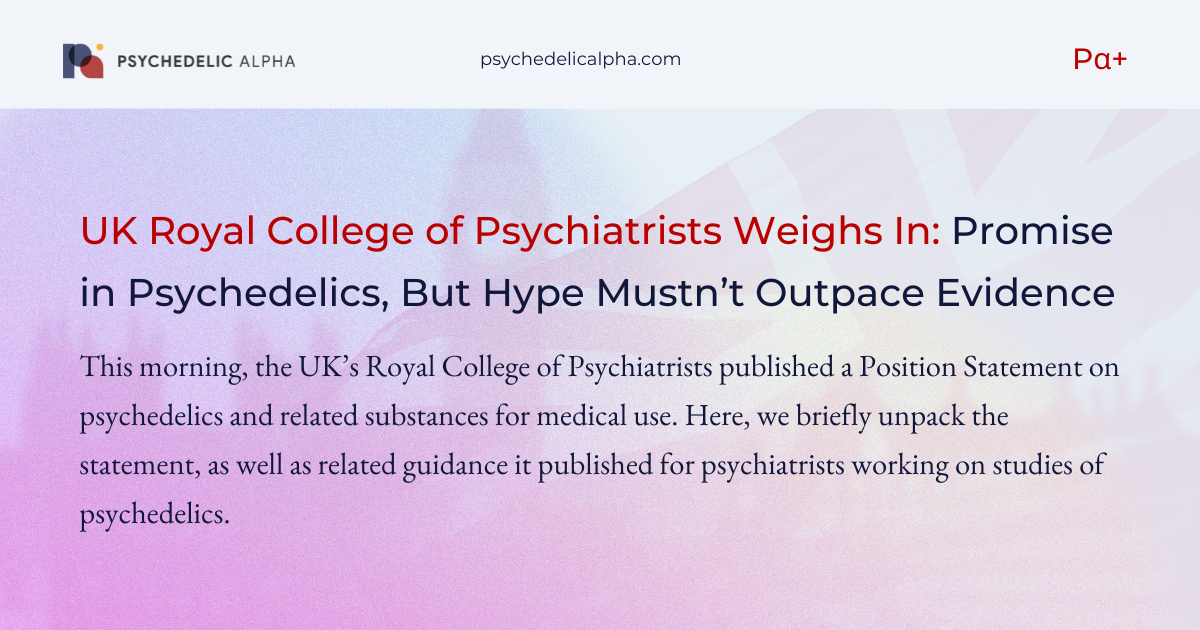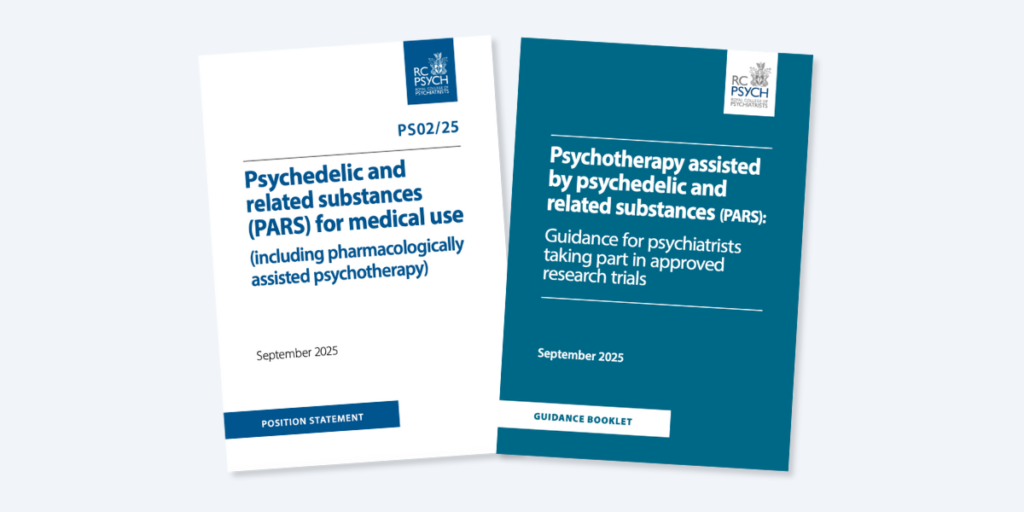In its report, the Royal College of Psychiatrists (RCPsych) reviews the available evidence for the use of psilocybin, LSD, MDMA, and ketamine, as well as other PARS, both as standalone treatments and in combination with psychotherapy.
Following its review, the College concluded that there is “currently limited high-quality evidence for the efficacy of these compounds”, and highlights questions around blinding, side effects, and the durability of effects. It also raised questions regarding how well current findings will translate to real-world clinical populations.
As such, RCPsych does not recommend their routine use in clinical practice, other than where licensed (here, it is referring to (es)ketamine).
Further research is needed, it says, which should focus on the therapeutic mechanisms and processes that drive efficacy as well as risks and benefits of PARS in ‘pharmacologically assisted psychotherapy’, including in clinical populations that don’t map neatly onto the selection criteria used in current trials. That research should also investigate risks like persistent psychotic and perceptual disorders, “as well as other untoward consequences”, the College says.
It also states that the College believes the therapeutic effects of PARS “are likely to be due to the interplay between the pharmacological effects … and the therapeutic relationship.” As such, it says, good therapeutic practice for the “psychological aspects of the treatment” should be managed via training and supervision…
Sign-in or join Pα+ to continue reading this article…
Join Pα+ Today
Independent data-driven reporting, analysis and commentary on the psychedelics space: from business and drug development through to policy reform and culture.
Already a member? Log In
✓ Regular Bulletins covering key topics and trends in the psychedelics space
✓ Regular articles and deep dives across psychedelic research, policy and business
✓ Interviews with insiders
✓ Monthly interactive database and commentary on psychedelic patents
✓ Quick-take analysis of major developments
✓ A Library of primers and explainers
✓ Access to our full back catalogue



